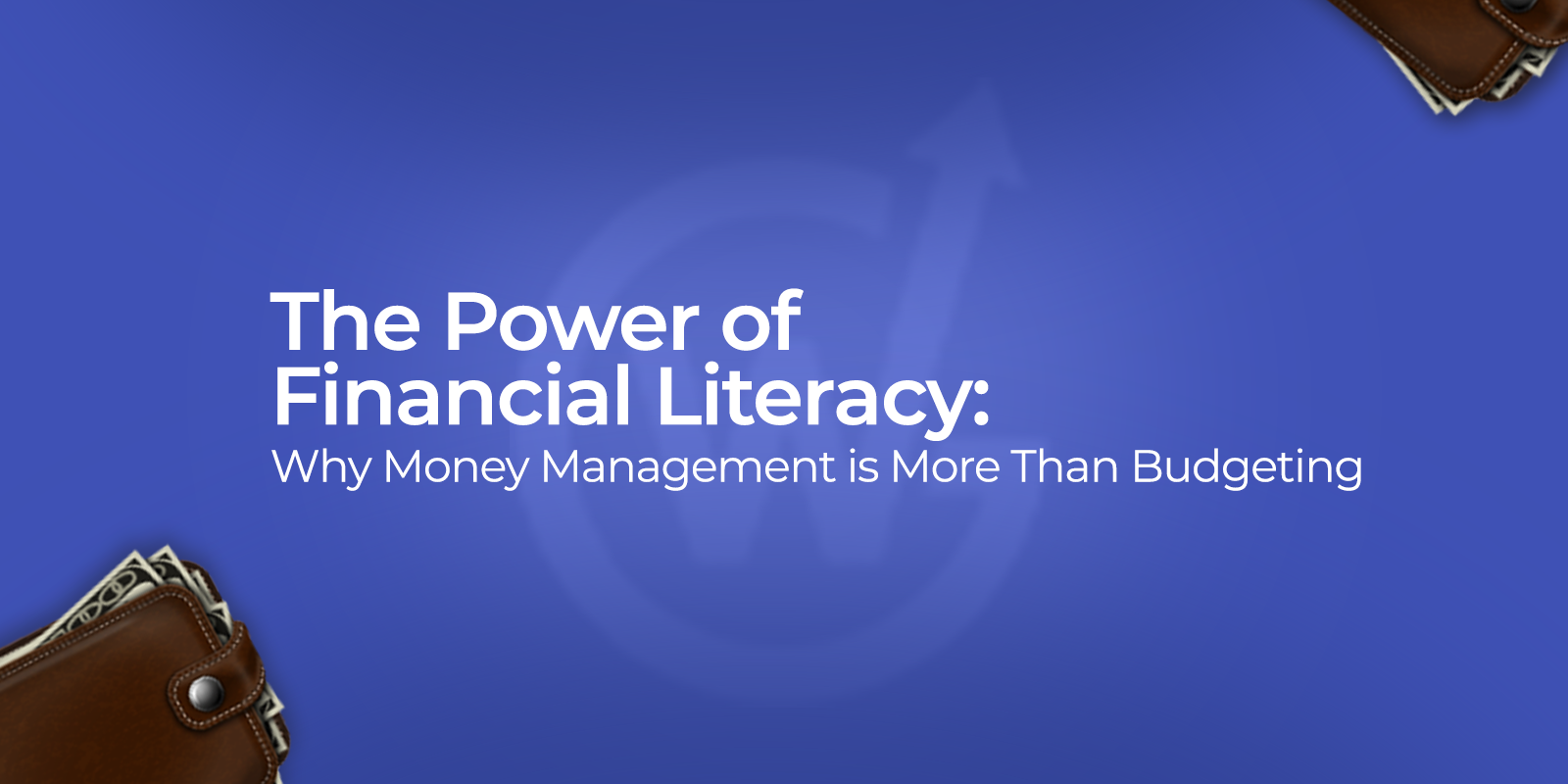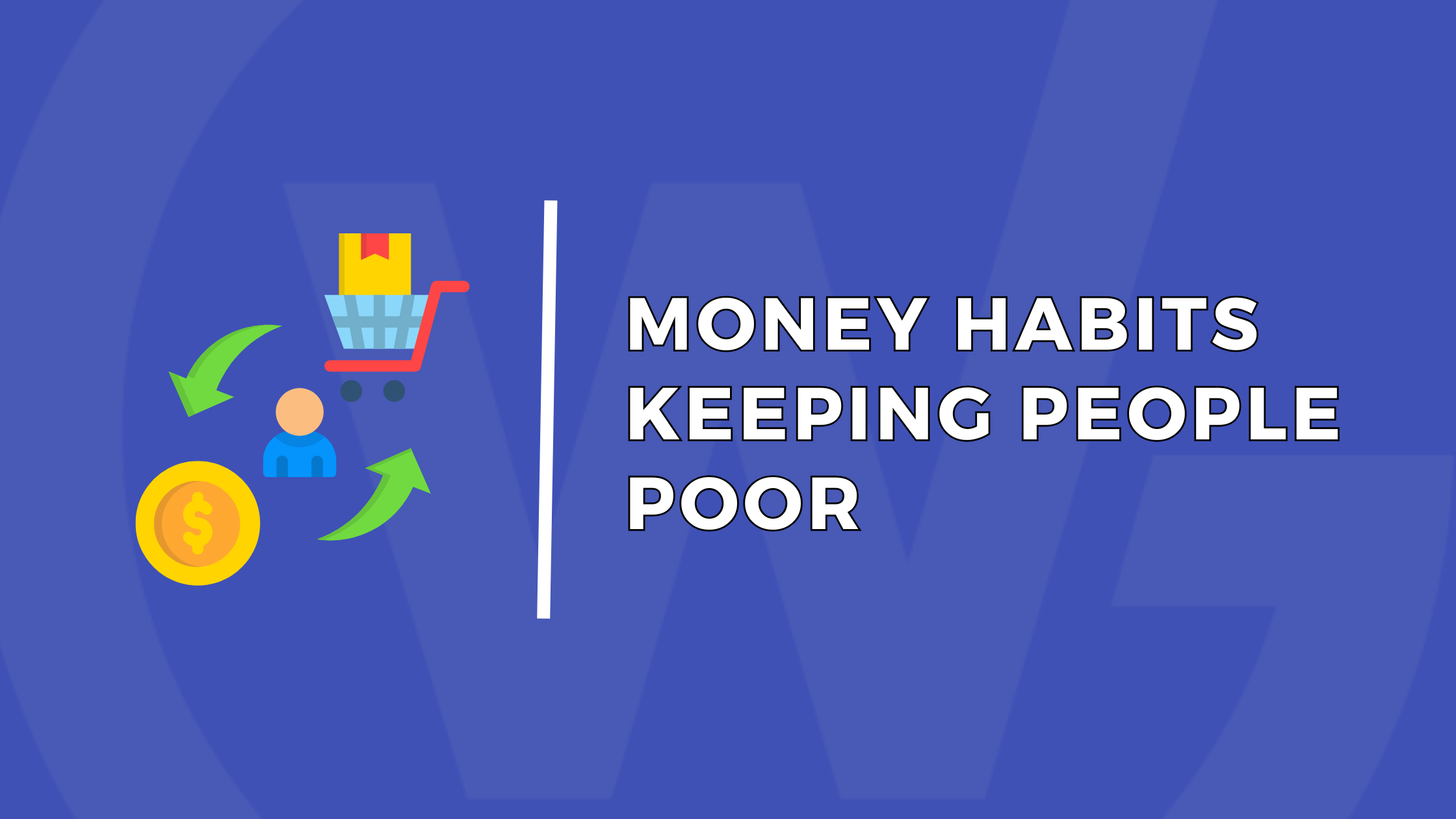Most people associate smart money management with budgeting, tracking income, cutting expenses, and saving a portion of their paycheck.
While budgeting is essential, true financial literacy goes beyond just balancing numbers on a spreadsheet. It’s about understanding how money works, how to grow it, and how to make informed financial decisions that lead to long-term security and wealth.
This article discusses the power of financial literacy and how you can avoid the pitfalls of a lack of it.

What is Financial Literacy?
Financial literacy is understanding and applying key financial concepts such as earning and managing income, saving, investing, credit and debt, wealth preservation, and much more.
It’s not just about knowing how much money you have. It’s about knowing what to do with it to maximize its potential. Therefore, being financially literate means you understand how money works and how to earn it, leverage it, and command it to do your bidding.
Why Financial Literacy Matters
Many people live paycheck to paycheck, not because they don’t earn enough, but because they lack the financial knowledge to make their money work for them.
There are many reasons why you should strive to be financially literate. Here are some of them:
- Avoid costly financial mistakes: Poor money decisions like excessive debt or bad investments can have long-term consequences.
- Helps build wealth: Knowing how to save, invest, and grow money ensures financial stability.
- Provides financial security: With the proper knowledge, you can weather economic downturns, job losses, or unexpected expenses without financial stress.
Smart Money Management: Beyond Budgeting
Budgeting is only one part of financial literacy. Effective smart money management requires a holistic approach to building wealth. This is a practical way to become financially literate:
1. Understanding Income Streams
Most people rely on a single income source, mostly their salary, but financial literacy teaches the importance of diversifying income. With multiple income sources, you have what you need to build generational wealth.
So, how do you increase your income streams?
The answer is to find something else that gives you money other than your current income source. If you have a day job, try starting a side business, investing in stocks or real estate, or monetizing your skills through freelancing or consulting.
2. Mastering Debt and Credit
Not all debt is bad, but mismanaging it can lead to financial disaster. In fact, people and businesses that understand the use of credit to build a solid project always turn out to be the most profitable.
Financial literacy helps you differentiate between good and bad debt, for example, student loans vs. high-interest credit card debt. It also enables you to use credit wisely to build a strong credit score and minimize interest payments by paying off debt strategically.
Once you become financially literate, you’ll no longer see debt in the same way an average person looks at it. You’ll see it as a tool you can leverage anytime to build a project from nothing to something worthwhile.
3. Saving vs. Investing
Many people believe that saving money is enough, but inflation reduces the value of savings over time. The money in your account today is worth more than its equivalent the next day. The reason is simple. The prices of goods and services increase over time. Therefore, what you can afford with that money today will be more than what you can afford with it in the future.
This is why financial literacy is essential. It helps you understand the importance of investing, the options available, and the risks they carry. For example, the risk of investing in bonds is far less than that of individual stocks of companies.
As a financially literate person, you’ll be able to diversify your investments for long-term growth and effective risk management.
4. Retirement and Wealth Preservation
Financial literacy isn’t just about managing money today. It’s about securing your future and that of your generations to come. That’s why, as a financially literate person, you’ll have a solid understanding of the importance of retirement savings, estate planning, and how to create passive income streams to have money circulating steadily within your household.
The Pitfalls and Consequences of Financial Illiteracy
Lack of financial literacy doesn’t just affect your bank balances. It can trap you in a cycle of financial instability that lasts for years or even generations. Without a solid understanding of money management, people often make costly mistakes that prevent them from building sustainable wealth.
Here are some of the most common consequences of financial illiteracy:
1. Living Paycheck to Paycheck with No Savings
Many people earn decent incomes but still struggle to make ends meet because they lack the knowledge and discipline to manage their money effectively. Instead of setting financial goals, creating emergency funds, or making their money work for them, they spend as they earn, leaving nothing for the future.
This can be a big challenge as they undergo constant financial stress and lack the ability to handle emergencies like medical bills, job loss, or unexpected expenses. The worst part is that living paycheck to paycheck can lead to dependence on loans to cover basic needs, which leads to even greater financial trouble.
2. Accumulating High-Interest Debt with No Plan to Pay It Off
Many financially illiterate individuals rely heavily on credit cards, personal loans, and payday loans without fully understanding the implications of high interest rates. They spend more than they earn, borrowing money to sustain their lifestyle without a clear repayment plan.
This accumulation of high-interest debts leads to a vicious cycle of increasing debt, badly damaged credit scores, and a lifetime spent on debt repayments.
3. Missing Out on Investment Opportunities
A common mistake among the financially illiterate is believing that saving money is enough. While saving is essential, keeping money in low-interest savings accounts instead of investing can mean missing out on wealth-building opportunities. Inflation gradually erodes the value of cash savings, while investments have the potential to generate wealth over time.
4. Struggling Financially During Emergencies or Retirement
Without a well-thought-out financial plan, many people reach retirement age unprepared, only to realize they don’t have enough savings or investments to sustain their lifestyle. Others experience financial ruin due to unforeseen emergencies that could have been managed with better financial planning.
The consequences include complete dependence on government pensions or family support, compromised health and well-being due to lack of finances, and plunging deeper into debt.
Take Control of Your Financial Future with WealthyGen
Financial literacy is not just for the wealthy. It’s for anyone who wants to break free from financial struggles and build a stable future. Managing money wisely goes beyond simple budgeting; it involves earning, saving, investing, and making informed financial decisions that sustain wealth over time.
At WealthyGen, we are committed to helping you understand how money works by providing the best resources and tools available.
Therefore, if you’re ready to take control of your finances, you can start your smart money management journey by signing up for the WealthyGen mobile application.






Why True Wealth is About More Than Just Money
[…] learning and skill-building create new opportunities for financial and personal growth. Always seek ways to develop and build on what you already […]
WealthyGen Unveils Powerful New App Update: Smarter Finance, Simpler Experience - WealthyGen Solutions
[…] is a next-generation personal finance platform committed to empowering users with the tools, insights, and automation they need to take control of their financi… WealthyGen has grown rapidly by staying laser-focused on user needs and leveraging the power of […]